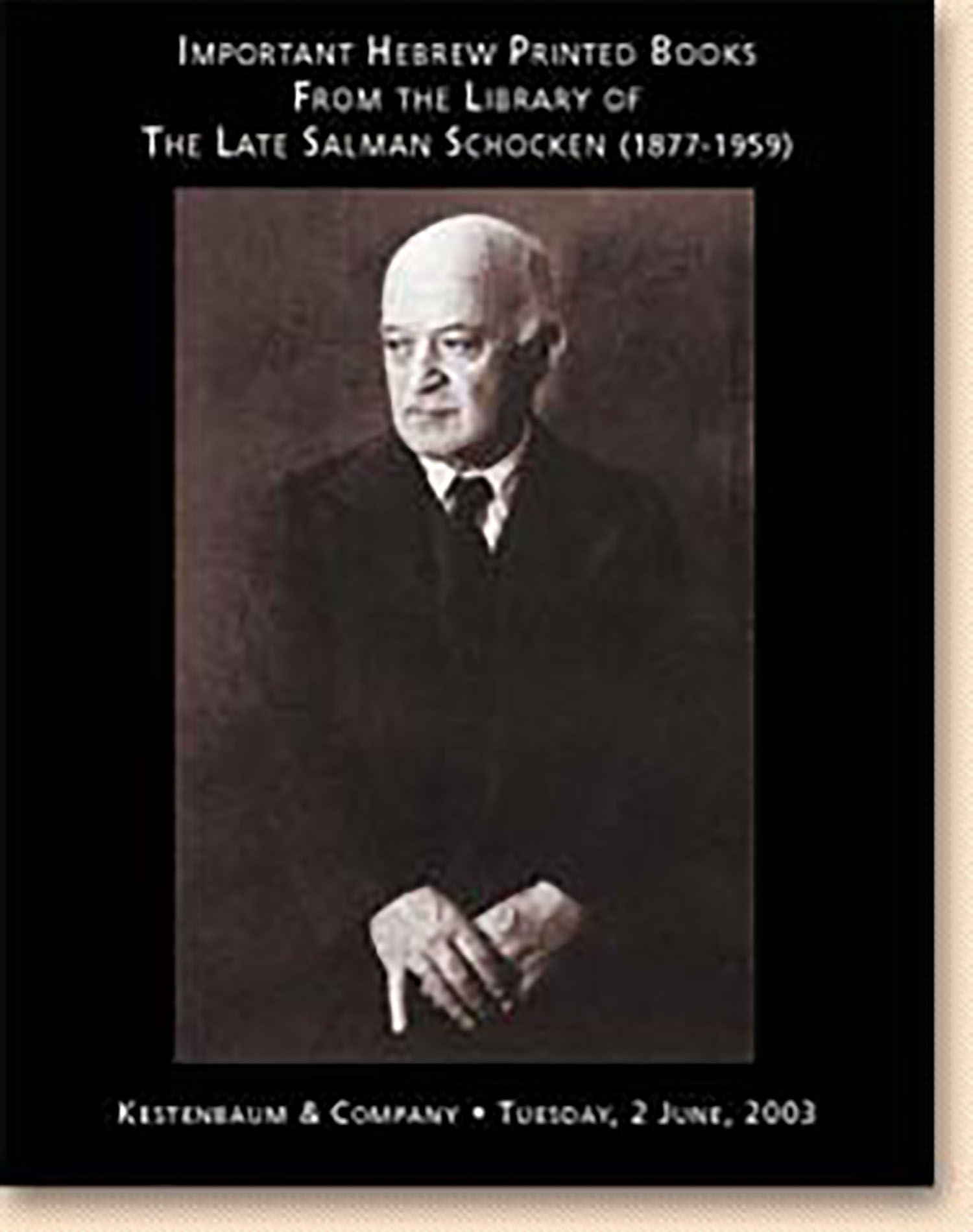Sepher Hakuzari [philosophy]. Translated from Judeo-Arabic by Judah ibn Tibbon

AUCTION 20 |
Monday, June 02nd,
2003 at 5:00
Important Hebrew Printed Books from the Library of the Late Salman Schocken (1877-1959)
Lot 13
HALEVI, JUDAH BEN SAMUEL
Sepher Hakuzari [philosophy]. Translated from Judeo-Arabic by Judah ibn Tibbon
Fano: Gershom Soncino 1506
Est: $15,000 - $20,000
PRICE REALIZED $48,000
THE FIRST EDITION OF A FUNDAMENTALLY VITAL WORK OF JEWISH PHILOSOPHY BY ONE OF THE GREATEST HEBREW POETS OF THE MIDDLE AGES.
A complete copy of this first edition is extremely rare. Indeed, even the Friedland copy in St. Petersburg, recorded by Weiner, is incomplete
This celebrated philosophical exposition of the teachings of Judaism, was prompted by questions to Judah Halevi posed by a Karaite. The Kuzari is one of just a very few book of Jewish philosophy written in the form of a Socratic dialogue. Halevi develops a philosophy of history in an attempt to show the insufficiency of theological conclusions arrived at by rationalistic means. His underlying principle is that God cannot be found or conceived by reason, God is to be conceived by intuition. It is this intuition (“Inyan Eloki”) which may bring one to the highest spiritual levels. The work has a polemical and apologetic dimension as well. Despite its initial prompting, it deals only marginally with Karaism and primarily discusses the perceived inadequacies of Christian and Islamic theology and the superiority of Judaism. See: M. Waxman, vol. I pp.333-39.
In the past century or so, the study of the Kuzari was encouraged by Rabbis Kook and Sarna (of Hebron), who stressed its experiential approach as opposed to the rationalism of the other great Jewish philosopher, Maimonides. For a most insightful comparison of the philosophy of Judah Halevi and that of Maimonides, see H. A. Wolfson, The Platonic, Aristotelian and Stoic Theories of Creation in Halevi and Maimonides, in: Essays Presented to J. H. Hertz Chief Rabbi (London, 1944) pp. 427-42. For a more recently published detailed analysis contrasting Halevi and Maimonides’ attitudes to the problems of Jewish philosophy see D. Hartman, Israelis and the Jewish Tradition (2000)
